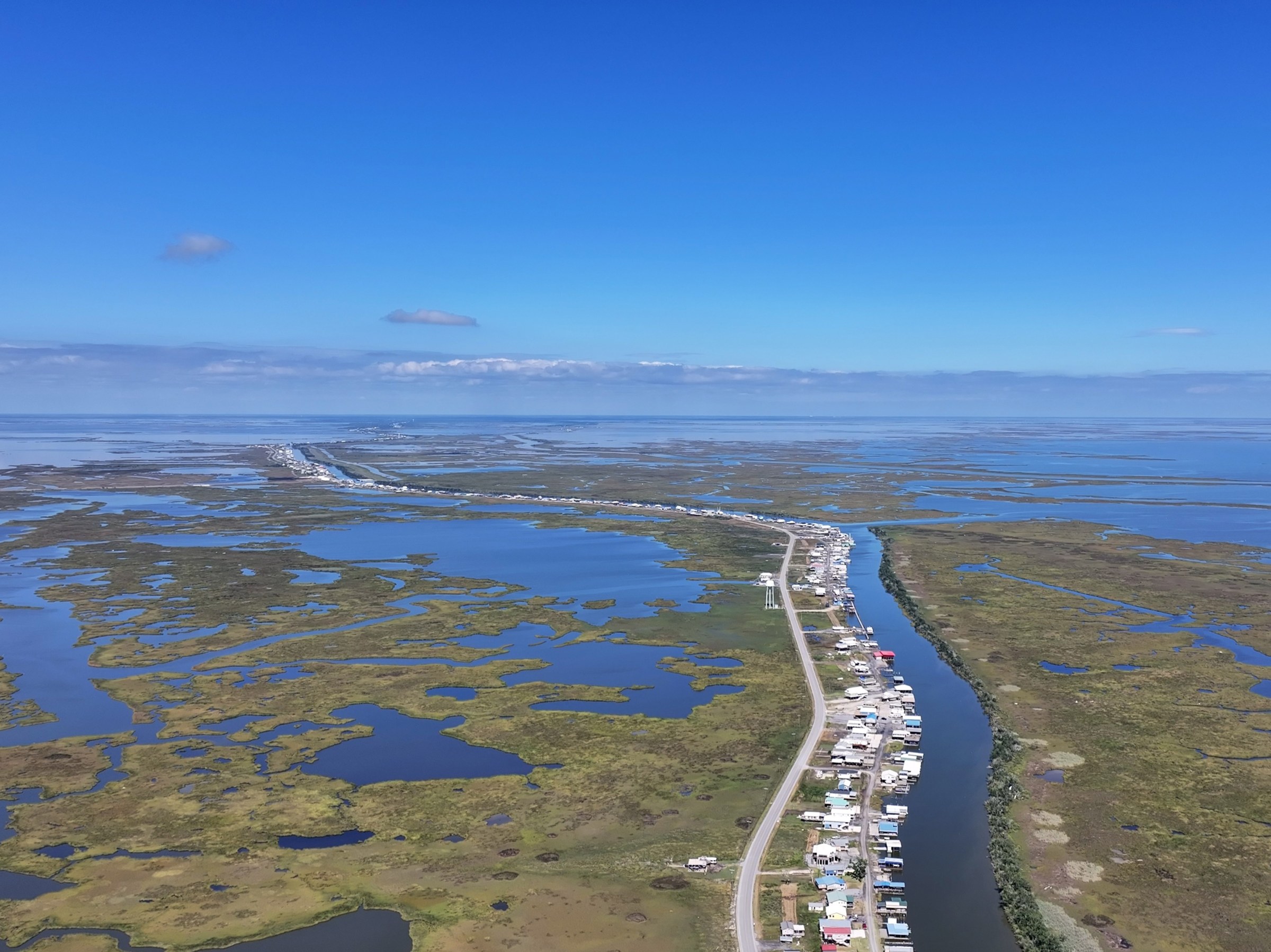Climate curriculum prize, initiatives

October 29, 2024
BY Laura McKnight, NAOMI KING ENGLAR
As responding to climate change becomes ever more critical, Tulane University has launched an innovative research unit devoted to mitigating and adapting to a rapidly changing planet.
The Center on Climate Change and Urbanism (CCU), bolstered by a $2.91 million anonymous donation, aims to gather and support climate research from a range of disciplines, geographic locations, academics and stakeholders.
The center, housed in the Tulane School of Architecture (TuSA), recently opened its first wave of research grants, prizes, and educational resources at climatesyllabus.org, as well as premiered a new website and officially announced its leadership team.
Leadership with impact
As Director of the CCU, Jesse M. Keenan, Favrot II Associate Professor of Sustainable Real Estate and Urban Planning for TuSA, leads all aspects of the center. Recognized as a pioneer in the study of climate change and the built environment, Keenan has driven an active scholarly discourse on decarbonizing and derisking the built environment. Through his public service and research, Keenan has shaped both public policies and a broader dialogue about how climate change is shaping how and where people live.
In his role as CCU’s Research Director, Adam Marcus, Associate Professor of Architecture, will help faculty steer curricula in ways that boost research into climate change and decarbonization, build collaborations for larger funding applications, and support broader dissemination.
Catherine Sckerl, CCU’s Managing Director and Professor of Practice in Architecture, will be building the center’s infrastructure to support student and faculty research projects and field-based research studios, to deliver programming and events that promote cross-disciplinary dialogue and knowledge-sharing, and to facilitate intra- and inter-institutional initiatives.
Climate syllabus bank and curriculum prize
Among its first initiatives, CCU created and launched a searchable repository for the collection and distribution of syllabi from around the globe of climate-related courses in the built environment. This platform, climatesyllabus.org, is focused on fostering a multidisciplinary exchange of climate-related educational materials and methods. The CCU has already compiled over 100 syllabi covering a range of disciplines, including urban planning, architecture, urban studies, landscape architecture, historic preservation, urban science and engineering, and spatial analysis. The repository is a free and open-source resource for anyone searching for climate-related syllabi or wanting to share their own.
To help spark further course development, the center has also launched an international prize to recognize innovation in the development of curriculum. The inaugural 2024-2025 Tulane Prize for Climate Change Curriculum in the Built Environment is now open and accepting nominations until January 31, 2025. Selected awardees will receive monetary awards totaling $10,000 (USD).
“Our goal is to train the next generation of climate leaders,” Keenan said. “As a repository that is helping to set the standards for climate change curriculum, we are placing Tulane among the vanguard of universities pursuing climate change education opportunities for their students.”
Research funding and support
Another objective of the CCU is to support research and applied design studios to explore ways of decarbonizing and reducing greenhouse gasses, along with preparing for and adapting to the effects of climate change. This includes supporting work with a geographic focus on the Gulf Coast and in the Caribbean and Latin America.
The center will facilitate relationships between Tulane researchers and stakeholders on the ground, allowing Tulane students and faculty to work closely with local experts and stakeholders in considering new climate-responsive possibilities.
“Sometimes we live in a world where our constraints limit our imagination,” Keenan said. Instead, the center will provide resources and tools to encourage more exploratory ways of thinking, he said.
Tulane faculty and students are already producing work at the forefront of climate-related research and the built environment, Keenan said.
“In recent years, Tulane’s School of Architecture has built a critical mass of scholars and researchers whose work engages with innovative approaches to addressing the causes and impacts of climate change,” added Marcus.
The center will create a hub for this type of research while setting up a productive exchange among multidisciplinary practitioners and community members and stakeholders. More specifically, the CCU is opening its first round of research grants for faculty at TuSA and another round for students at TuSA. Applications for both are due by November 15, 2024.
“As architects and planners, our skill is in envisioning potential futures — our work is to look forward with all stakeholders and design a future that’s more socially and environmentally sustainable,” said Sckerl.
TuSA, in particular, is uniquely suited to foster an interdisciplinary bridge between design, planning and science, as architecture itself connects science with the humanities, the center’s leaders said.
“Mitigating and adapting to climate change require expertise from across multiple disciplines and boldly innovative rethinking of how we design and understand the built environment,” said Marcus. “TuSA and CCU are uniquely positioned to support and lead new interdisciplinary collaborations for engaging these challenges in novel and critical ways.”
The new leadership team says Tulane’s location in New Orleans aids in the center’s goals, as the region sits on the front lines of the effects of climate change.
“It’s hard to think of a more critical context to think about climate than New Orleans and the Gulf South,” Marcus said. “Obviously, there’s an urgency to that, but also the opportunity to be a research university in that kind of context is compelling.”
But the work done could benefit an entire planet.
“The impacts of climate change are accelerating, and there is no one who is not impacted,” Sckerl said. “We can’t continue to ignore it or be passive about including climate adaptation and mitigation in our work. It must be front and center.”
For more information, visit the Center on Climate Change and Urbanism (CCU) website and read the Tulane News press release announcing the first wave of CCU initiatives and programs.